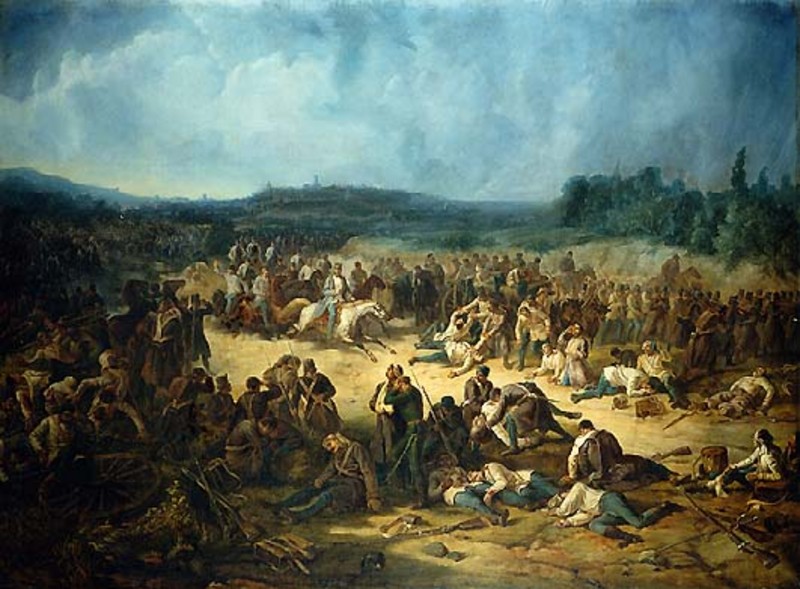
“Tutti fratelli”: Solferino, Italy and Humanity’s Wounds

Henri Dunant had come to Italy on business. But when he arrived in northern Italy he instead witnessed the Battle of Solferino. Here the armies of the French and Austro-Hungarian Empires and of the Kingdom of Sardinia were engaged in a great battle to decide who would rule in the Po Valley (a crucial step in the birth of Italy as a country).
When Henri Dunant saw the tens of thousands of wounded in the fields after all was over, his heart filled with compassion for his fellow human beings. He organised care for the wounded. Realising the need, he went on to contribute to the founding of the International Red Cross, to the adoption of the Geneva Conventions and by the end of his life he was shared the first international peace prize for his humanitarian work.
The story of his personal response to scenes of carnage and the suffering of the wounded and dying and his efforts to organise volunteers and resources to care for them has been told many times. Dunant’s book: A Memory of Solferino, is an early example of war journalism. The book is a vivid personal memoir of what he observed. His book is also incidentally witness to a bitter moment in Italian history. It is impossible not to feel the horror of what Dunant recounts; and not be moved to compassion for the suffering of men now long dead. The barbarity of war, the nobility it sometimes evokes, the pitiless (or desperate) greed of looters and the compassion of others are all laid bare in his account. Humanity in all our complexity is laid bare and the madness of war could not be clearer.
Henri Dunant’s descriptions of the Battle of Solferino
Here is hand-to-hand struggle in all its horror and frightfulness; Austrians and Allies trampling each other under foot, killing one another in piles of bleeding corpses, felling their enemies with their rifle butts, crushing skulls, ripping bellies open with sabre and bayonet. No quarter is given; it is a sheer butchery; a struggle between savage beasts, maddened with blood and fury. Even the wounded fight to the last gasp. When they have no weapon left, they seize their enemy by the throat and tear them with their teeth.
Henri Dunant, A Memory of Solferino, p 19
Dunant contrasts such scenes with scenes of heroism where suddenly we see masses of nameless beasts transformed into visions of individual human courage who sacrifice life and safety in service to their country.
How many brave soldiers, undeterred by their first wounds, kept pressing on until a fresh shot brought them to earth, and they could fight no more.
Henri Dunant, A Memory of Solferino, pp 32-33
The aftermath of the battle is ghastly.
When the sun came up on the twenty-fifth, it disclosed the most dreadful sites imaginable. Bodies of men and horses covered the battlefield; corpses were strewn over roads, ditches, ravines, thickets and fields;the approaches of Solferino were literally thick with dead. The fields were devastated, wheat and corn lying flat on the ground, fences broken, orchards ruined, … The villages were deserted and bore the scars left by musket shots, bombs, rockets, grenades and shells. Walls were broken down and pierced with gaps where cannonballs had crashed through them. Houses were riddled with holes, shattered and ruined, and their inhabitants, who had been hiding, crouching in cellars without light or food for twenty hours, were beginning to crawl out, looking stunned at the terrors they had endured.
It took three days and three nights to bury the dead on the battlefield, but in such a wide area many bodies … were only found much later …
Henri Dunant, A Memory of Solferino, pp 41-42, 48
“Tutti Fratelli”: tending to the wounded
The most moving scenes are those where Dunant and many others respond to the thousands of wounded seeking to assist them either in their last moments or to save their lives.
Oh, the agony and suffering of those days … Wounds were infected by dust and heat, by shortage of water and lack of proper care … Men lay side by side on the flagstone floors of the churches of Castiglione — Frenchmen, Arabs and Slavs. … They called out in their distress for a doctor, and writhed in desperate contortions that ended in death. … With faces black with flies that swarmed about their wounds, men gazed around them wild-eyed and helpless. Others were no more than a worm-ridden, inextricable compound of coat and shirt and flesh and blood. …
Before long a group of volunteers was formed … Nearly five hundred soldiers were there, piled in the [Chiesa Maggiore], and a hundred more lay outside on straw in front of the church, with strips of canvas to protect them from the sun. The women [of Castiglione] entered the churches, and went from one man to another with jars and canteens full of pure water to quench their thirst and moisten their wounds. Some of these improvised nurses were beautiful and charming girls. Their gentleness and kindness, their tearful and compassionate looks, and their attentive care helped revive a little courage among the patients. The boys of the neighbourhood ran back and forth between the churches and the nearest fountains with buckets, canteens, and watering pots.
… the women of Castiglione, seeing that I made no distinction between nationalities, followed my example, showing the same kindness to all these men whose origins were so different, and all of whom were foreigners to them. “Tutti fratelli”, they repeated feelingly. All honour to those compassionate women, to these girls of Castiglione! Imperturbable, unwearying, unfalteringly, their quiet self-sacrifice made little of fatigue and horrors, and of their own devotion.
The feeling one has of one’s own utter inadequacy in such extraordinary and solemn circumstances is unspeakable. It is indeed, excessively distressing to realize that you can never do more than help those who are in just before you …
Henri Dunant, A Memory of Solferino, pp 60-64, 72
Those who arose to serve the wounded in their turn suffered injury; in this case to their mental well-being. Others had been recruited to help, but most could only last a few days.
Before long, … our … volunteer helpers withdrew one by one, for they could no longer bear to look upon suffering which they could do so little to relieve. … One French tourist, overcome by the sight of the living wrecks before him, burst into sudden sobs. A Neuchâtel merchant devoted himself for two whole days to dressing wounds, and writings letters to their families for dying men. It became necessary, for his own sake, to restrain his zeal …
Henri Dunant, A Memory of Solferino, pp 64-65
And death: the certainty of death; for so many that they tended in their last moments.
“Don’t let me die!” some of these poor fellows would exclaim — and then, suddenly seizing my hand, with extraordinary vigour, they felt their access of strength leave them, and died. … A young Corporal … There was no hope for him, and of this he was fully aware. When I helped him to drink, he thanked me, and added with tears in his eyes: “Oh, Sir, if you could write to my father to comfort my mother!” I noted his parents’ address, and a moment later he had ceased to live.
Henri Dunant, A Memory of Solferino, p 66
Humanity’s Wounds
When such lines are read, it is hard to believe that any cause could be worth such monstrous scenes of human suffering. They are scenes which humanity continues to repeat into the present.
The Battle of Solferino was one of Europe’s greatest battles of the 19th century, taking more than 40,000 lives. It was conducted by countries which, at the time, esteemed themselves as representative of the height of human civilization.
Apart from its significance for Italian unification, as the battle was part of the Second Italian War of Independence, it shifted balances of power in Europe. Step by step Europe was sliding towards world war.
In Dunant’s account humanity’s wounds are laid bare. Not just of the individual soldiers whose physical wounds he tended, but the wounds in the body politic of humanity.
Italy, as much, if not more, than many places, for much of her history, has been the scene of the vicious conflicts that tear humanity apart. For Italy’s geography and history lie across wounds of politics, religion, culture and human ambition. For many centuries it was a playground in which the powers of Europe played a “Great Game”. Earlier it lay at the fracture lines between partisans of Papal Power and Imperial power. Earlier still it was the scene of Christian and Islamic divisions; or Orthodox and Catholic competition; or Roman and German warfare; or of interminable internal conflicts between factions within a city; or between baronial privilege and monarchical prerogative within larger states.
Italy’s entrapment in these internal and external conflicts has been a powerful factor in its history.
Image
Henri Dunant at the Battle of Solferino, 1860s
Sources and Notes
The primary source for this article was Henri Dunant’s A Memory of Solferino. The full text can be read online at the website of the International Red Cross. More can be read about Henri Dunant’s life at https://www.icrc.org/eng/resources/documents/misc/57jnvq.htm
Castiglione refers to the town of Castiglione delle Stiviere, nearby Solferino, in the province of Mantua. A moment has been erected in the town paying tribute to the women who Dunant memorialises.
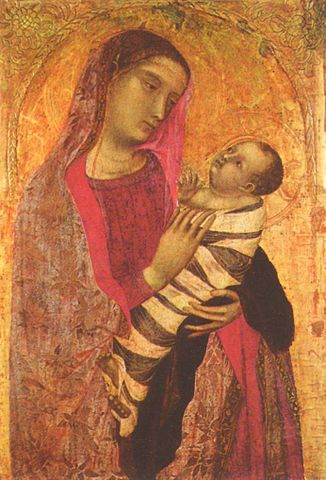
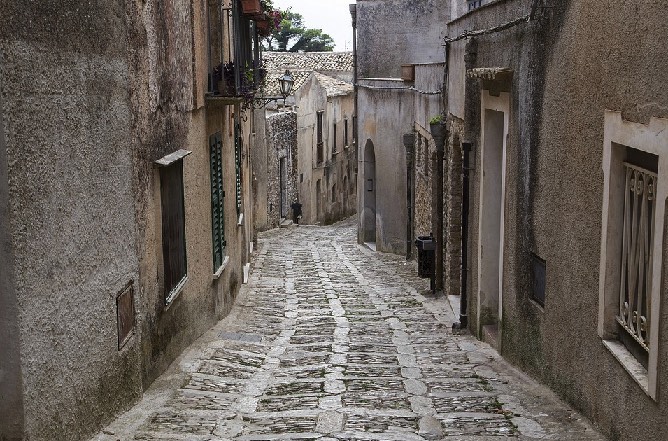
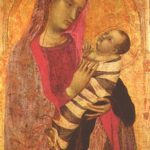
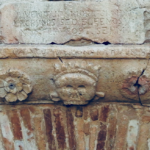
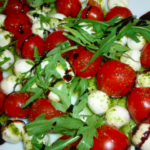
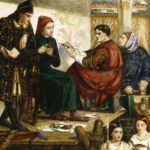
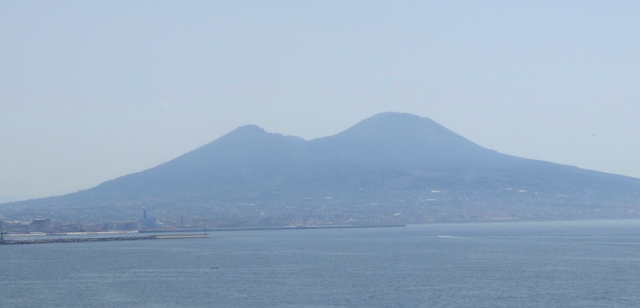
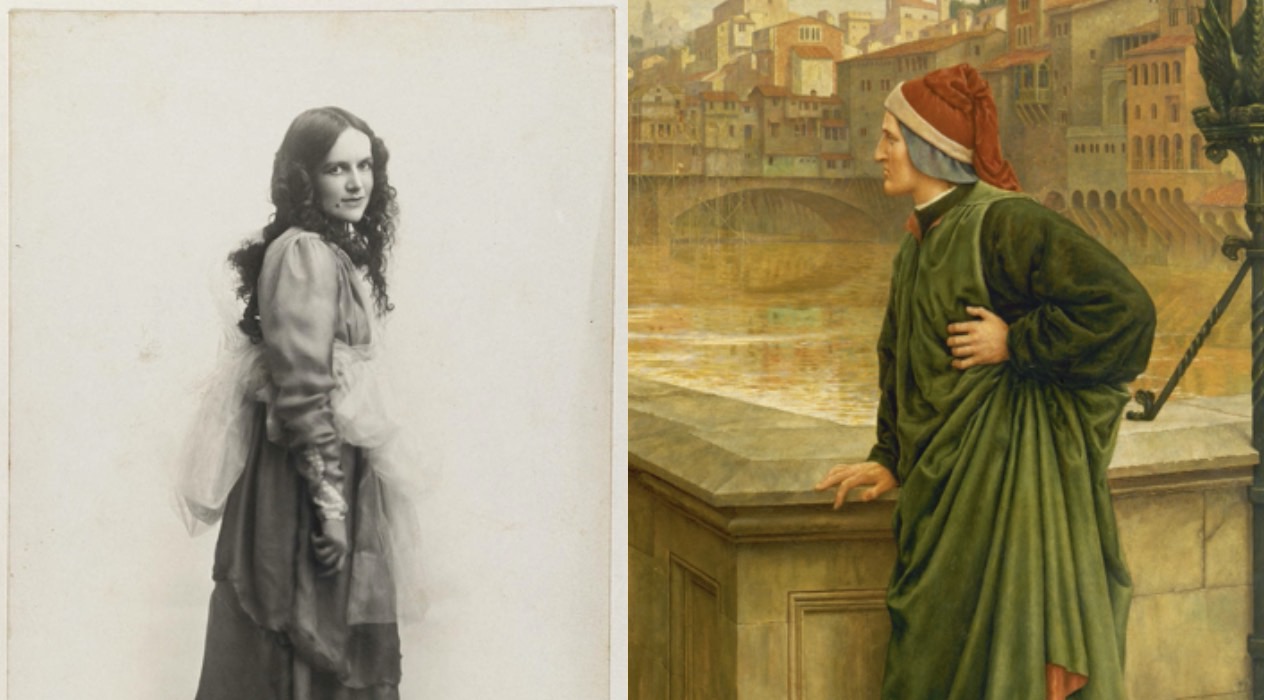
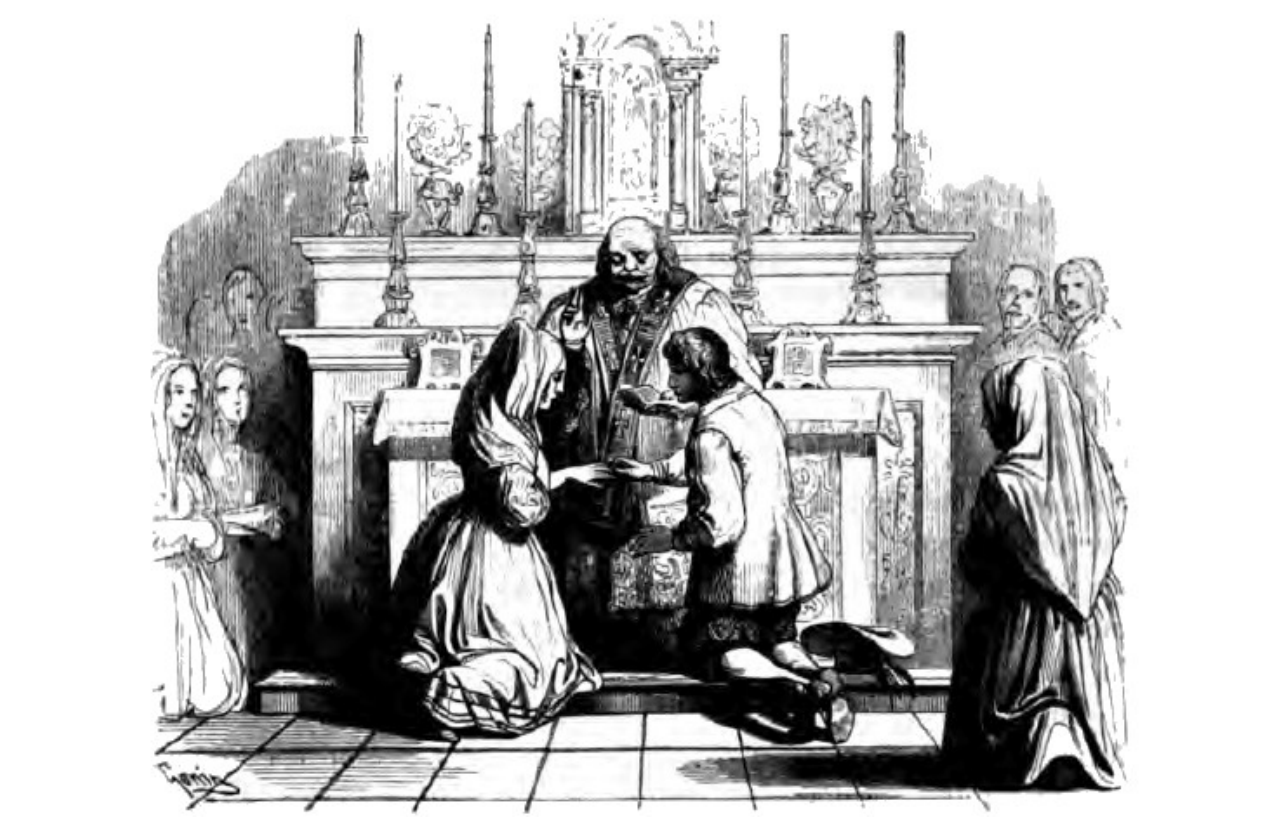
One Comment
Pingback: